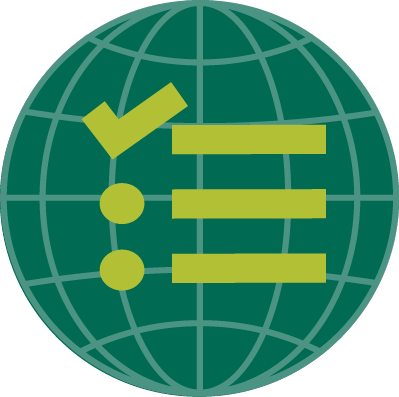As a result of the Covid-19 pandemic, many manufacturing sites on the African continent had to scale down their pharmaceutical production due to lockdowns, supply shortages and stock-outs of imported active ingredients and other excipients. These supply shortages show once again the importance of local production of medicines and medical devices in accordance with international standards for the independence and sustainable development of African countries.
In order to resume and continue production - even in times of a pandemic - it is essential that manufacturers are able to comply with local hygiene regulations and provide adequate protection for their workers from the infection with the virus.
Current Good Manufacturing Practices (cGMP) is a system to ensure medicinal products are consistently produced and controlled according to quality standards. Moreover, it is a requirement for fulfilling regulatory requirements, being competitive, and entering international markets. Local manufacturers have highlighted the prevention of cross-contamination and cleaning validation as one of the big challenges in the area of compliance with international Good Manufacturing Practices (cGMP). There is a need for local manufacturers to build up human capacity to produce quality assured medical products and for regulators to strengthen regulatory oversight as many African countries struggle to improve access to high quality essential medical products and strengthen health security.
Goal
The aim of this e-learning course is to provide practical information and knowledge about the risks of cross-contamination and cleaning validation. The course also informs about possible transmission routes of the new corona virus SARS-CoV-2 in the professional context and to recommend hygiene concepts for pharmaceutical manufacturing sites.
The course focuses on the cGMP standards and requirements of the WHO as one of the most important GMPs.
The course participants will be able to critically analyse the cGMP requirements for sanitation, hygiene and cleaning validation and to implement them in their daily work routine in the manufacturing and regulatory environment. The course contents are practiced interactively by the participants in quizzes, tasks and discussion forums.
These capacity building activities in the areas of hygiene concepts, cross-contamination risks and cleaning validation will ultimately prepare participants from pharmaceutical manufacturers and national regulatory authorities better for working in pandemic situations and will make them better equipped to produce and regulate quality assured essential medicines in accordance with national and international standards.
- Lead facilitator: Christina Foerg-Wimmer
There is currently a strong momentum for the strengthening of the local pharmaceutical sector in developing and emerging markets. Regional and national strategies to promote local pharmaceutical production in line with international standards are being developed. Besides 'modern' or 'western' medicines, this also includes herbal and traditional medicines - in line with their increasing popularity and market shares worldwide.
While the rationale for local production is simple - including factors such as independence from donor programmes which may not run forever, more steady supply chains, and greater control to local regulators - there is still a long way to go and markets are tough... Local companies, especially in low and middle income countries, often face substantial hurdles.
One of the big challenges is the lack of a qualified human resources base in the manufacturing sector of medicines and other healthcare products. In particular, there is need for skilled personnel for quality units (quality assurance, quality control) and other GMP relevant areas. Costs for bringing in experts from abroad are high. Combined with other challenges, local manufacturers often struggle to compete and even survive. Not being in line with international quality standards, they are prevented from passing WHO prequalification, participating in international tenders, and entering international markets.
Moreover, the national medicines regulatory agencies (NMRAs) of these countries experience a shortage too of qualified staff in GMP, GMP inspection and dossier evaluation. This creates difficulties for the NMRAs to enforce internationally acceptable regulatory requirements (including GMP standards) thereby preventing the availability of affordable quality generics for the majority of their low income population groups.
Traditional and herbal medicines have great potential and can enrich the modern medical landscape – given that they are safe, effective and quality-assured. Despite the requirement to follow GMP standards for production of traditional and herbal medicines, not all actively producing manufacturers, especially in developing countries, comply with international GMP standards - with potential serious consequences for the health of consumers.
This e-learning course introduces Good Manufacturing Practices for medicines and healthcare products, including herbal and traditional medicines. The course focuses on WHO GMP standards and requirements as one of the major GMPs. Course participants will learn about GMP requirements, including procedural, organizational and infrastructural aspects, as well as about the GMP inspection process. They will be able to critically analyse and implement basic GMP requirements in their daily working routine in the manufacturing and regulatory environment. The participants will practice course contents in quizzes, assignments, and discussion forums.
In the end, these capacity building measures in the area of GMP and GMP inspection will make participants from local manufacturers and national regulatory authorities better equipped for production and regulation of quality assured essential medicines and healthcare products, in line with national and international standards.
- Lead facilitator: Christina Foerg-Wimmer

